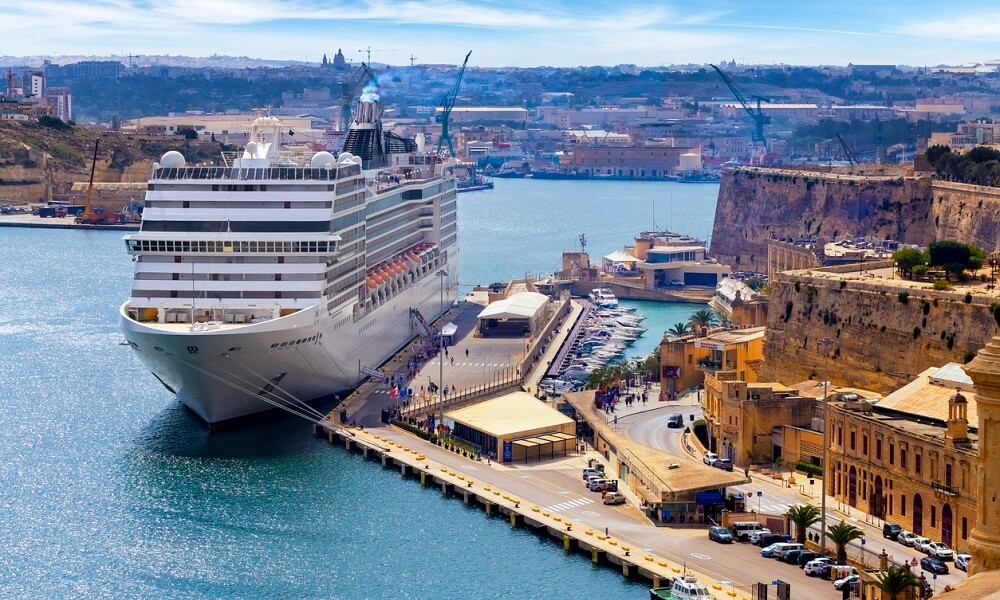Placeholder Book Review Pakistan
23 April 2023

Welcome to Osceola Reception. The information provided on this microsite offers perspective on our professional activities. Selected articles may appear elsewhere in corporate publications.
The idea of a pleasure trip in which the voyage itself is the hospitality experience is a modern-day concept. Vessels are floating resorts, subject to the whims of economic cycles and consumer preferences. Investors are drawn to these companies by their ability to generate cash, akin to the traditional lodging industry.
The core of the tourism industry is heritage promotion. Some authorities bask in the robust cash flow generated by overtourism; others puzzle over how to draw visitors to remote locations. The persistent controversy generated by UNESCO World Heritage Site ascension and descension is telling.
Every hotel has its own culture, even though that culture may be shared with assets across a brand portfolio. Destination properties rise above this replication standard with one-of-a-kind features. These holdings align with guests’ emotions, providing recurring room demand and upside margin flexibility.
Whether the draw is as narrow as an international art fair or as grand as the Olympics, events have now gone hybrid. Some elements are virtual, while other components may be live. Production executives address new pricing and sponsorship metrics as traditional fee structures are upended.
Revenge travel catapulted the hospitality industry out of pandemic-era collapse. Consumers were undiscerning for a while, but they now refine their excursion preferences with the ascent of artificial intelligence. Household budgets prove volatile amid shifting geopolitical concerns.
Traveling to other countries for medical procedures is now routine. Common reasons include lower cost and better quality. Some opt for dental procedures; others schedule eye surgeries or heart operations. Especially across the developing world, countries compete aggressively for this hard-currency income stream.
Multinational companies set industry standards because of their ability to allocate development capital and leverage distribution networks. Most hotel enterprises embrace an asset-light strategy so they can be agile in strategy decisions. Their dominant position is challenged by hoteliers operating in niche markets.
Major investors look to hotel properties as a diversification play within real-estate portfolios. They may favor predictable cash-flow metrics or want to leverage economic growth. An unspoken reason for these asset commitments is that hotels are visceral investments, often gliding through due-diligence concerns.
The travel sector has been reinvented by the internet. Booking sites are the core example, empowering consumers to think beyond brick-and-mortar travel agencies. Seemingly-dominant players are vulnerable to niche competition. The shift to do-it-yourself reservations has simultaneously spawned a burgeoning travel-knowledge industry.
The food service industry too was reset by the pandemic. In the United States and elsewhere, labor trends lead to upward pressure on menu prices. Companies find relief in technology to improve both sales margins and sales volume. Multi-hyphenate restaurants become commonplace in a reach for diversification.
Government officials advocate tourism development because of the outsized impact on local economies, at least that is the classic view. Tourism is increasingly viewed as a two-edged sword because of the stress on public services and infrastructure. Economic gains can be fleeting. Cash outlays are siphoned away by unprincipled companies.
While the history of fairs and carnivals can be traced back to the Middle Ages, the notion of a fixed setting for amusement is largely an innovation of the twentieth century. Skyrocketing growth in the theme-park industry was propelled by income gains in the US and Europe. Operators now look to emerging markets for expansion plans.
Technology has heavily influenced the evolution of the hospitality industry because of the positive impact on operating efficiency and customer service. Many entrepreneurs discover belatedly that their digital innovations are subject to a high degree of economic cyclicality because revenue depends on consumers’ often-uncertain income streams.
Extra: Dark Tourism
Sensationalized as spotlighting macabre activities, dark tourism is actually a reflective experience. Visiting places linked to death and disaster help us to wrestle with our fragility. Classic destinations are the Killing Fields of Cambodia or the World Trade Center in Manhattan. Many sites are controversial among politicians and historians.
Read the fine print. Cranganore operates worldwide. However, the company cannot offer all services in every jurisdiction or to all businesses. We may act in concert with locally-regulated entities in some cases.
Banner shows cruise ship quayside at Valletta. Credit: Ewg3D at iStock by Getty Images.